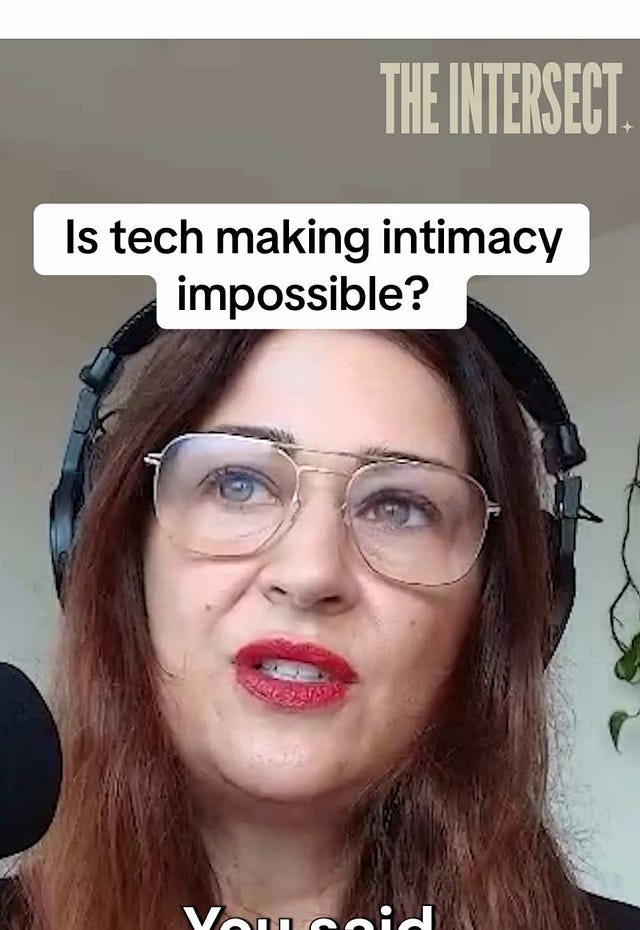Hiding in plain sight: the secret epidemic of digital addiction
Can tech solve all the loneliness it helped create?
PornHub logged 4.1 billion visits in June of this year, making it one of the 10 most-visited sites on Earth. Some popular estimates say upwards of 90 percent of men are addicted to pornography*, though peer-reviewed studies suggest self‑reported rates are closer to 10–17 percent.
Regardless of the percentage, the data shows we now spend billions and billions of hours each year consuming porn. And behind the numbers is a crisis of shame and connection that technology has both fueled and now claims it can solve.
When I spoke this week with Chandler Rogers, co-founder and CEO of recovery app Relay, he put it simply: digital addiction can form around anything we turn to through our screens. Porn is one of the more obvious examples of addiction, which personally brought Chandler to create this platform. but we could easily swap in scrolling TikTok, gaming, streaming, doom scrolling, online shopping. None of these habits is inherently ‘bad,’ but they all offer the opportunity for compulsive consumption.

 Tiktok failed to load.
Tiktok failed to load.Enable 3rd party cookies or use another browser
I’ve had men bring this to me directly over the last year. Again and again the same undertow surfaces. This is not about moral panic. It is about reckoning with how technologies designed to soothe shame and loneliness are instead compounding both, with what seem to be fewer exit ramps.
On the show this week, Chandler shared new data** from Relay’s user base that reveals just how deep this runs:
81% say porn addiction has made them feel isolated and alone
90% say they feel shame around their usage
83% feel powerless to change on their own
66% report significant pain in their romantic relationships
76% say it has eroded their identity and sense of purpose
These are not marginal numbers, and they point to a cultural undercurrent hiding in plain sight. One that shapes intimacy and expectations even for those who may not even identify as being ‘addicted.’
Chandler shares how digital addiction is a coping mechanism -- a solution, not the root problem. Porn, in particular, becomes a ‘bid for connection,’ he calls it, a way of seeking intimacy that can never quite deliver on its promise.
This is where technology complicates things further. It accelerates the cycle. It customizes the escape. And as AI begins to generate even more immersive, personalized pornography, the promise AND the emptiness grow. We are not biologically prepared for this escalation.
And yet, even here, there are points of light. For many, 12-step programs work not because of the doctrine, but because of the community -- the accountability that comes from walking into a room full of strangers and choosing to be vulnerable. Relay is an attempt to recreate that in a digital space.
This conversation with Chandler is about porn addiction, yes, but it is also about the broader feedback loop of technology, loneliness and a shared culture in the shadows through digital addiction.
What’s popping in AI:
Deepfake ‘doctors’ peddle dubious cures in AI-driven scam surge
CBS News reports a troubling trend: AI-generated deepfake videos across social media are portraying real doctors and are being used to market questionable medical treatments. While platforms like TikTok and Meta have removed or restricted many of these videos, the study highlighted by cybersecurity firm ESET shows how these deepfakes are twisting trust in healthcare.
White House launches ‘Presidential AI Challenge:’ Innovation for students or industry overreach?
First Lady Melania Trump unveiled the ‘Presidential AI Challenge’ this week, championing AI integration in K-12 classrooms with support from tech titans like Google and IBM. While proponents hail the initiative as a leap toward educational empowerment, critics warn it signals growing tech influence in public policy. (The Guardian)
OpenAI unveils new AI-powered jobs platform to rival LinkedIn
OpenAI’s new venture -- the ‘OpenAI Jobs Platform’ -- promises to streamline job matching with AI at its core, directly challenging LinkedIn’s turf. Anticipated to launch by mid-2026, the platform aims to connect employers and talent through ‘intelligent’ matchmaking. (Techcrunch)
‘Model welfare’ and the moral maze: should AI systems have legal rights’
WIRED’s newly published piece probes the speculative field of ‘model welfare’ -- a movement exploring whether AI could ever qualify for moral or legal consideration. Researchers seek frameworks to detect consciousness in machines as a way to prepare for future ethical dilemmas. Skeptics including Microsoft’s Mustafa Suleyman warn of public confusion if we rush to anthropomorphize code. (Wired)
President Trump recently dismissed a legitimate video -- confirmed by his own staff -- as ‘probably AI.’ Experts warn this trend of blaming technology to dodge accountability is becoming the new ‘fake news.’ And that we are entering an era where AI-generated content is everywhere, casting doubt on real events simply by calling them AI. (Associated Press)


